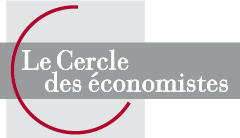Regions, State, who should respond to crises
Overview
The particularly unprecedented nature of the current crisis, its universality, both social and transnational, has contributed to a reflection on the protective and federating role of the State, and more broadly on the organisation of our models of governance in times of crisis. Social democracies, especially European ones, seem to be better equipped to absorb the shock of health and economic crises and to guarantee a minimum safety net for citizens. However, the coronavirus crisis has also accentuated inequalities and contributed to further polarising populations, while states are struggling to finance expensive social security systems. At the same time, there has been a proliferation of local initiatives, sometimes with a high symbolic cost (mask-making by citizens), in territories hitherto excluded from the paradigm of large-scale crisis management. Thus the responsibility of the regions and Landers, and even territories at European level, has been given a new lease of life while confirming a balance of power between the State and the other institutionalised territories. This complex reality raises questions about the effectiveness of the model of governance and decision-making to be adopted in the face of crises: Do States have the means to protect citizens from all crises? Is the promise of protection against unpredictable crises credible? Is the centralized state too far from the reality on the ground to provide an effective solution? How should responsibility for crisis response be distributed among the different levels of power? Is the welfare state a myth or a model to be achieved? And in what form in a system that is both decentralized and globalized?
Speakers


-
Bank for International Settlements / Le Cercle des économistes


Coordinator

Moderator













